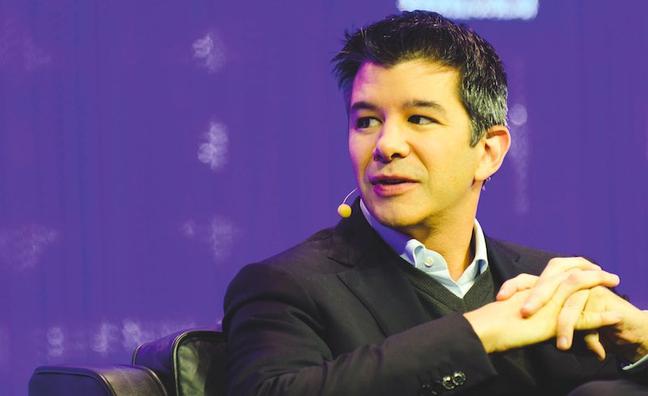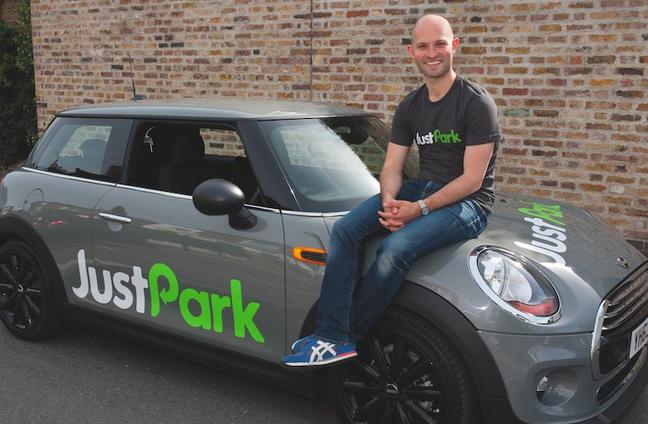From the earliest age it’s ingrained into us to be wary of strangers. The very idea of getting into a car with someone you don’t know, or arranging to stay in their house over the internet, was the stuff of parental nightmares. Now the likes of Uber and Airbnb are challenging this deep-seated societal norm; almost singlehandedly making us trust one another again.
In just a few short years, sharing companies have bombarded these social barriers, undoing centuries of suspicion in the process. The sharing economy phenomena went from a free-spirited fringe movement to a formidable economic force in relatively no time at all – and it’s got the established order rather worried. Uber’s presence has sparked riots in Paris, protests in London and Airbnb has narked more than a few housing activists along the way, yet this decidedly drastic action hardly paints the full picture. Of course, they make great headlines, but the reality is that for the few who can’t get their head around sharing services, most of us are relying on them for the day-to-day.
By the end of 2014, one million Uber rides were taken every day. On peak nights this summer another one million-plus will be staying with Airbnb. Numbers don’t lie and they’re only getting bigger. We’ve taken to sharing in droves and now it’s worth an awful lot of money – Uber’s valuation alone is possibly set to hit the $50 billion mark. So what exactly is the sharing economy? Why have we all been sucked in? How are governments reacting? And is there any hope for old corporations facing this new wave of disruptive innovation?

Travis Kalanick, CEO of Uber
Starting off with the absolute basics. What exactly is the sharing economy? It’s after all a little more complex than simply imparting a service with the expectation of getting it back – nobody needs a book to explain that.
Alex Stephany, CEO of JustPark, who has also penned the de-facto bible on the matter, The Business of Sharing, briefly defines it as “taking underutilised assets and making them accessible online to a community, leading to a reduced need for ownership of those assets,” adding, “the sharing economy is the value in redistributing excess to a community”.
So rather than just letting your home, parking spot or even your pet sit there for weeks at a time while you’re out of town, you can make some money off it by listing it on the relevant service – be it Airbnb, JustPark or Borrow My Doggy. You can guess what that last one does.
Efficiency has a fundamental role to play also. In economic terms this form of collaborative conception boils down to the relationship between supply and demand, and the demand getting hold of supply at the best price. Stephany explains these marketplaces are “doubley about efficiency”, they are allowing peer-to-peer transactions without legacy overheads and bureaucratic practices that haven’t changed in a few hundred years. In the case of accommodation, rather than go through a hotel chain and face additional fees you can connect with someone through Airbnb, One Fine Stay or House Trip and rent out a spare room or whole house for the week. Similarly with taxi services, why pay a premium on a Black Cab when a guy with a sat nav can get you where you need to go for half the price?
Unequivocally, sharing is nothing new. We all lend the odd thing here and there to friends and neighbours. But that net of who we’re happy to give to has been cast over a far wider proximity, and now it comes with a price, of course. But why are we suddenly happy to let complete strangers borrow our parking spaces, get into our cars, and look after our dogs?

Alex Stephany, CEO of JustPark
The internet, as ever, is the easy answer. As our expert notes: “the sharing economy is an internet phenomenon, it doesn’t exist without the internet and obviously the more pervasive the internet becomes, both in terms of new broadband speed and smartphone penetration, the easier it is for services to ride on the back of that interaction.”
We can also point the finger at social media. The world is a little more open thanks to Facebook, Twitter and the like; it’s easy to get a feel for somebody after a quick scroll through their social profiles. This has helped build a certain degree of trust. As a generation, Millennials have never been shy about sharing their life online, so transacting in this way with strangers through a third party isn’t an unthinkable leap.
James McClure, Airbnb’s UK and Ireland country manager, also raises the point about the inception of his company and the financial crisis. “Airbnb was founded in 2008, the same year the recession hit. This was a pivotal point and played a major role in the growth of the sharing economy, as people looked to alternative ways to earn extra cash from new services.” Not only were millions looking to raise a little extra income, but plenty of people wanted to get more from every pound – turning to services that offered an alternative at a more competitive rate. As we came out of the fiscal squeeze, we continued to use sharing services – it turns out they’re not only cheaper but customer experiences have been pretty great too.
“What can make these services stick is that they offer a better experience,” Stephany reiterates. “It’s not just about saving money, it’s about a greater experience. In the case of AirBnb there might be a social experience. In the case of JustPark, it can be much more convenient, it can be never having to worry about getting a parking ticket again.”

James McClure of Airbnb UK
One party not getting much from our newfound embracement of sharing however are the companies losing business because of it, as you’d expect. Taxi operators are up in arms, literally in the case of Parisian drivers, and governments are facing pressure to puts the brakes on the movement.
UK policymakers, however, have talked up making the country the home of the sharing company, reports have been commissioned and a trade body has been established. Yet not every firm is waiting for the executive to slow the growth, instead they’re biting back with schemes of their own that utilise sharing in some way. Amazon is developing an app called On My Way, allowing customers to fill the role of the courier, picking up and delivering parcels in their local area – all for a fee. Whilst BMW are taking the lead in automotives, realising the current generation isn’t buying but sharing. The German company has launched DriveNow, where consumers can book a car through their smartphone and access it using a chip in their driving license.
Stephany even offered a few words of advice to Hilton Hotel on fixing its business model to contend with the growing influence of sharing-based rivals: “I definitely think there are examples where competing companies need to be more forward thinking… If I were Hilton, I would say, actually there are people renting out luxury apartments in London, well why don’t I start Hilton Homes? I can rent out a curated marketplace of luxury homes and I can service these places with staff from my hotels and guests can pay huge premiums to live in them when they come to London and they can use the hotel amenities and they can use the swimming pool and all of these things that people don’t have in an Airbnb.”
In all, considering the drivers that have established the sharing economy’s momentum, like it or not it’s hard to see it grinding to a halt anytime soon.
“It’s 80 per cent good and 20 per cent bad. Broadly speaking, it’s something that’s going to benefit countries and cities everywhere,” says Stephany.
The unleashing of micro-entrepreneurship and the creation of jobs can’t be a bad thing in anyone’s books, the real concern though comes down to the form of labour produced and the work that is potentially being ousted in its favour.
Social media and smartphones are only tightening their grip on our stream of consciousness and whilst it’s by no means black and white, regulation will always be a cloud. Sharing with a price is here to stay.

Become a Gentleman’s Journal Member?
Like the Gentleman’s Journal? Why not join the Clubhouse, a special kind of private club where members receive offers and experiences from hand-picked, premium brands. You will also receive invites to exclusive events, the quarterly print magazine delivered directly to your door and your own membership card.
Further reading

The best private members' clubs in New York

Pavilion Knightsbridge: A stylish bolthole for the discerning businessman
